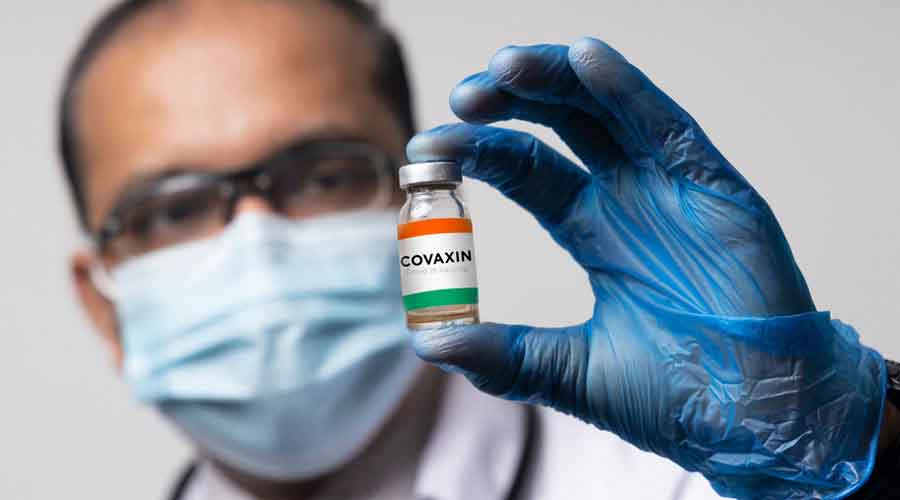The technical experts tasked by the World Health Organisation to decide whether to grant emergency use listing to Covid-19 vaccines, including India’s Covaxin, are expected to assess vaccines’ efficacy, quality, safety and production consistency, experts familiar with the process said.
The WHO had last week said it would take a “final decision” on whether to grant Covaxin the EUL — a stamp of approval expected to boost the vaccine’s global acceptability — this week, which would be three months after vaccine maker Bharat Biotech submitted its dossier.
The dossier contained thousands of pages of electronic documents — enough, if printed, to fill three cars — detailing Covaxin’s makeup, production process, immune responses observed in animals, and results of the clinical trials on human volunteers.
The WHO and Bharat Biotech have independently indicated that the evaluation process is rigorous, with the technical experts seeking information from the company, although neither has revealed the content of those exchanges.
“The exchanges suggest the experts evaluating the vaccine want more information than what they had already received through the dossier,” said a senior Indian virologist who is not associated with the process.
But some experts familiar with the WHO’s EUL process believe that three months to evaluate Covaxin would not be unusually long because any homegrown vaccine from India or other developing countries is likely to encounter slightly tougher scrutiny than vaccines approved in the US or Europe.
A WHO document outlining the assessment pathways for EUL indicates that vaccines approved by a stringent regulatory authority — such as those of Canada, the European Union, the UK, the US — may undergo an “abridged assessment” based on reports from those authorities.
“This is a reality that Indian drug and vaccine makers routinely encounter — India’s drug regulatory authority is not among those viewed as stringent,” said one expert. “The assessment thus becomes more detailed than it would be for vaccines already approved in the US or Europe.”
The WHO officials were not immediately available to validate this inference or explain the differences in the assessment pathways for vaccines approved by stringent regulatory authorities and by other regulatory authorities.
Bharat Biotech had in early July posted the results of its clinical trials on 25,000 volunteers, citing 77 per cent protective efficacy against symptomatic disease, 93 per cent efficacy against severe disease and 65 per cent protection against the highly contagious Delta coronavirus variant.
The company’s dossiers would need to provide details of clinical trial protocols, evidence of ethics committee approvals, evidence of good clinical practices at each trial site, and follow-up studies on volunteers as evidence of long-term safety.
The EUL evaluation seeks not just efficacy data but also details of the manufacturing process and controls, including flow diagrams that describe each sub-process and the equipment involved. The company also has to demonstrate batch-by-batch consistency.
India’s drug regulatory authority had approved Covaxin and Covishield, the AstraZeneca vaccine produced in the country by the Serum Institute, in early January. But while Covishield received WHO’s EUL listing on February 15 this year, Bharat Biotech sent its dossier only in July.
The WHO has so far granted EUL to Covid-19 vaccines from Pfizer-BioNTech, Moderna, AstraZeneca and two Chinese entities.











